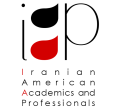Where: Montgomery Community College (Rockville Campus) – Humanity Building (HU), Conference Room 009 (Get Directions, Campus Map )
Language: Farsi

Synopsis:
The history of Iran has always been influenced by her natural riches, as well as mining and metallurgical activities. More than 4000 occurrences and deposits of metallic ore as well as nonmetallic and fuel with an estimated total reserve of fifty billion tons are scattered across the country. Archeological surveys and findings in mining exploration show that the exploration of mines in the country dates back to 5000 B.C. Excavated artifacts made up of copper, gold and silver are evidence of the continuous development of quarrying and melting ores and metals. Iran’s mineral wealth, in addition to oil and gas includes coal, iron ore, non ferrous ores of zinc, lead, manganese, antimony, aluminum (bauxite), chromium and industrial minerals such as limestone and kaoline, zeolite, along with ornamental stones, refractory materials (fire clay, magnesite, kaolinite) and gemstone (turquoise). The mineral production is now standing at 400 million tons per year. The mined material directly, or after ore processing, is used by various domestic industries and a small part is exported. The lecture will review the state of mining industry in contemporary Iran.
About the Speaker:
Hamidi Anaraki was born in 1944. After graduating from technical faculty of Tehran University in mining engineering in 1967, he completed six month training scheme in mining management in Japan during 1975. He worked as mining expert in the ministry of industry & Mines, and also as managing director of Iran Barite Co., and the member of the boards of Iran Mine House, Ajin Co., Nedaye Rahavi Co., Mehr Ajin Co., and Omran Anarak Cement Co. He worked in the field of mining in both public & private Sectors. He has Prepared and presented several paper on dimension stones and smooth blasting in granite quarries. He has been elected as a member of Tehran Chamber of Commerce and served as a member of Iran Chamber of Commerce for 12 years.
Fee (including dinner): $5 Students, $15 Public
Please click here to RSVP.


